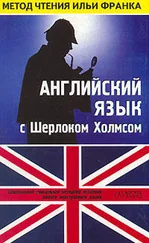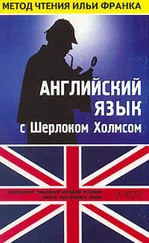clue [klu:] absolutely [,&bs@'lu:tlI] job [dZA.b]
“The final letter which Ratchett had probably found on his pillow was carefully burnt. With no clue pointing to the Armstrong case there would be absolutely no reason for suspecting any of the passengers on the train. It would be put down as an outside job, and the ‘small dark man with the womanish voice’ would actually have been seen by one or more of the passengers leaving the train, at Brod!
“I do not know exactly what happened when the conspirators discovered (я не знаю точно, что случилось, когда заговорщики обнаружили) that this part of their plan was impossible (что эта часть их плана сорвалась: «была невозможной») owing to the accident to the train (из-за того, что поезд попал в заносы; owing to — благодаря, вследствие; accident — несчастный случай, катастрофа, авария) . There was, I imagine, a hasty consultation (состоялось, я предполагаю, поспешное совещание/консультация) , and then they decided to go through with it (и тогда они решили довести дело до конца; to go through with smth. — довести что-либо до конца) . It was true that now one and all of the passengers were bound to come under suspicion (теперь, правда, все до одного пассажиры попадали под подозрение) , but that possibility had already been foreseen and provided for (но и эта возможность была уже предвидена и предусмотрена) .
conspirator [k@n'spIr@t@] accident ['&ksId(@)nt] consultation [,kOns(@)l'teIS(@)n]
“I do not know exactly what happened when the conspirators discovered that this part of their plan was impossible owing to the accident to the train. There was, I imagine, a hasty consultation, and then they decided to go through with it. It was true that now one and all of the passengers were bound to come under suspicion, but that possibility had already been foreseen and provided for.
The only additional thing to be done (единственное, что еще необходимо было сделать) was to confuse the issue even further (так это запутать все дело еще больше) . Two so-called ‘clues’ were dropped in the dead man’s compartment (две так называемые "улики" были обронены в купе убитого) — one incriminating Colonel Arbuthnot (одна бросала: «бросающая» тень на полковника Арбэтнота) (who had the strongest alibi (у которого было самое надежное алиби; strong — сильный; веский, убедительный) and whose connection with the Armstrong family was probably the hardest to prove (и чью связь с семейством Армстронгов, возможно, было труднее всего доказать; hard — твердый; трудный, тяжелый) ; and the second clue, the handkerchief, incriminating Princess Dragomiroff (и вторую улику, носовой платок, уличающий княгиню Драгомирову) who, by virtue of her social position (которая, в силу своего общественного положения; virtue — добродетель, нравственность; by virtue — в силу /чего-либо/, вследствие, по причине /чего-либо/; social — общественный, социальный; относящийся к положению в обществе) , her particularly frail physique (своего особенно хрупкого телосложения) and the alibi given her by her maid and the conductor (и алиби, предоставленному ей ее же служанкой и проводником) , was practically in an unassailable position (находилась практически в безопасности: «в неприступном положении»; to assail — наступать, атаковать, нападать; unassailable — неприступный, неопровержимый) .
incriminating [In'krImIneItIN] physique [fI'zi:k] unassailable [,Vn@'seIl@b(@)l]
The only additional thing to be done was to confuse the issue even further. Two so-called ‘clues’ were dropped in the dead man’s compartment — one incriminating Colonel Arbuthnot (who had the strongest alibi and whose connection with the Armstrong family was probably the hardest to prove); and the second clue, the handkerchief, incriminating Princess Dragomiroff who, by virtue of her social position, her particularly frail physique and the alibi given her by her maid and the conductor, was practically in an unassailable position.
“Further to confuse the issue (чтобы еще больше запутать дело) , a red herring was drawn across the trail (был проложен ложный след; to draw a red herring across the path /trail/ — сбить с толку, намеренно вводить в заблуждение; to draw — тащить; red herring — копченая селедка; ложный след; trail — след, хвост; тропа) — the mythical woman in the red kimono (/была выдумана/ женщина в красном кимоно; mythical — мифический; вымышленный, несуществующий) . Again I am to bear witness to this woman’s existence (и снова я должен засвидетельствовать существование этой женщины; to bear witness to smth. — давать показания о чем-либо, свидетельствовать; to bear — переносить, перевозить; давать /показания/) . There is a heavy bang at my door (что-то сильно ударилось о мою дверь; heavy — тяжелый; сильный, интерсивный; bang — сильный удар) . I get up and look out (я поднимаюсь /с постели/ и выглядываю /в коридор/) — and see the scarlet kimono disappearing in the distance (и вижу, как алое кимоно исчезает вдалеке; distance — расстояние; отдаление, даль) . A judicious selection of people (такие благоразумные люди: «разумно выбранные люди»; judicious — здравомыслящий, рассудительный; разумный, целесообразный; selection — выбор, отбор, подбор) — the conductor, Miss Debenham and MacQueen (/как/ проводник, мисс Дебенхэм и Маккуин) — will also have seen her (также должны были увидеть ее) .
red herring [,red'herIN] existence [Ig'zIst(@)ns] disappearing [,dIs@'pI(@)rIN] judicious [dZu:'dIS@s]
“Further to confuse the issue, a red herring was drawn across the trail — the mythical woman in the red kimono. Again I am to bear witness to this woman’s existence. There is a heavy bang at my door. I get up and look out — and see the scarlet kimono disappearing in the distance. A judicious selection of people — the conductor, Miss Debenham and MacQueen — will also have seen her.
It was, I think, someone with a sense of humour who thoughtfully placed the scarlet kimono (некто, как мне кажется, обладающий чувством юмора, находчиво положил это алое кимоно; thoughtful — задумчивый; вдумчивый, тщательно продуманный; to place — ставить, помещать, размещать) on the top of my suitcase (в мой чемодан: «на самый верх моего чемодана»; top — верхушка, вершина; верхняя часть) whilst I was interviewing people in the dining-car (пока я проводил беседы с пассажирами в вагоне-ресторане) . Where the garment came from in the first place (кому изначально принадлежало это кимоно: «откуда вообще взялся этот предмет одежды»; in the first place — во-первых, прежде всего; вообще) , I do not know (я не знаю) . I suspect it is the property of Countess Andrenyi (я предполагаю, что оно принадлежит: «это собственность» графине Андрени) , since her luggage contained only a chiffon negligee (так как в ее багаже нашлось только шифоновое неглиже; to contain — содержать; negligee — утренний женский халат) so elaborate (такое изысканное; elaborate — тщательно продуманный; сложный, замысловатый) as to be rather a tea-gown than a dressing-gown (что скорее было платьем, чем халатом; tea-gown — нарядное дамское платье, надеваемое к чаю /для полуофициальных приемов/; dressing-gown — халат, пеньюар) .
Читать дальше






